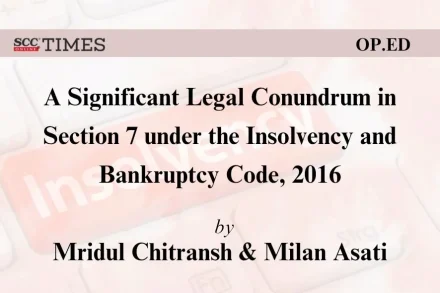
A Significant Legal Conundrum in Section 7 under the Insolvency and Bankruptcy Code, 2016
by Mridul Chitransh* and Milan Asati**

by Mridul Chitransh* and Milan Asati**
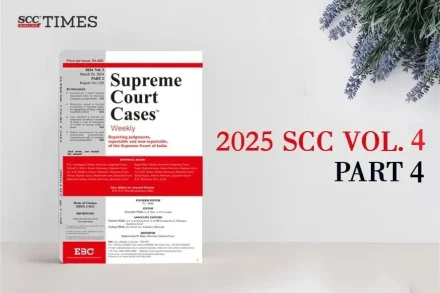
Criminal Procedure Code, 1973 — S. 438 — Anticipatory bail — In corruption offences: Law clarified on grant of anticipatory bail in
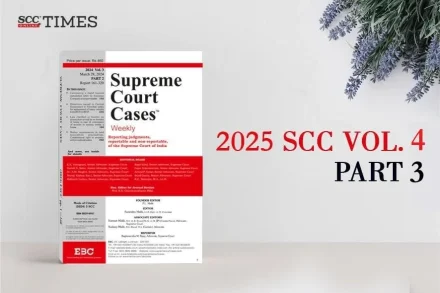
Court can consider any document with intrinsic worth having bearing on lis decided earlier
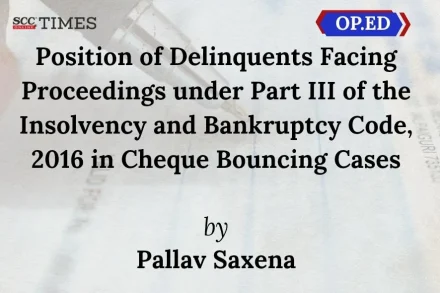
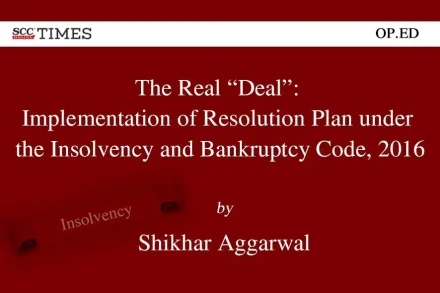
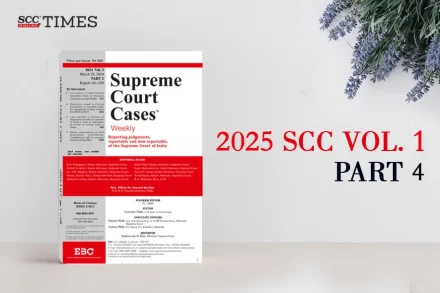
Arbitration and Conciliation Act, 1996 — S. 11(6) — Substantive claims of petitioner whether time-barred i.e. issue of limitation requiring intricate evidentiary
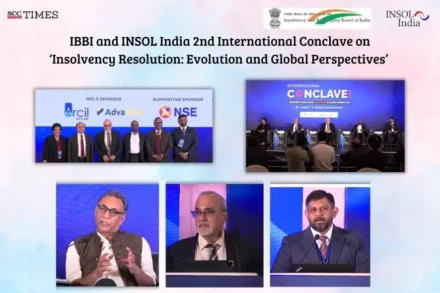
The Insolvency Bankruptcy Board of India (‘IBBI’) and INSOL India held the 2nd International Conclave in Delhi on 7th December to engage in the path-breaking discourse surrounding the ever-evolving space of insolvency and bankruptcy.
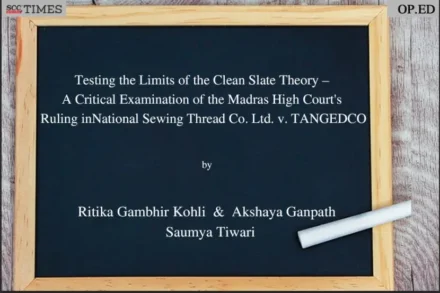
by Ritika Gambhir Kohli†, Akshaya Ganpath†† and Saumya Tiwari†††
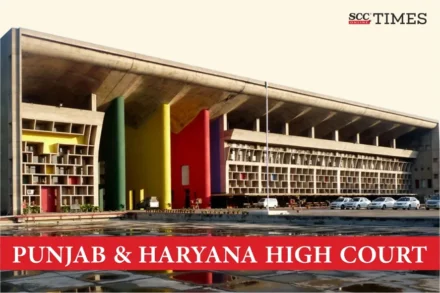
The bank has acted in an arbitrary and illegal manner by claiming that the entire bid amount shall be deposited by the petitioner, while on the other hand, avoiding the question of the supervening legal impossibility, which debarred them from issuing Sale Certificate or handing over the physical possession of the property to petitioner.
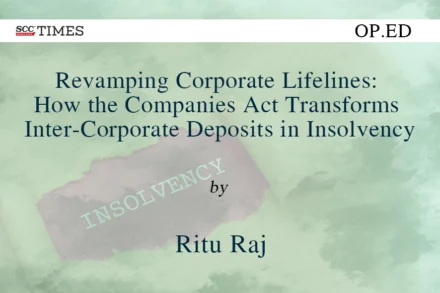
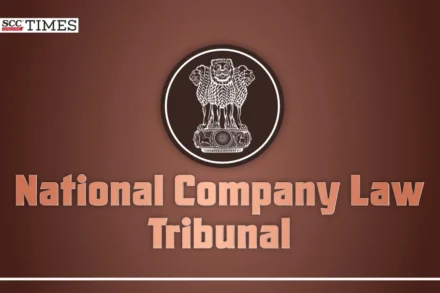
The NCLT noted that Form AA, meant for individual Insolvency Professionals, had been modified by the Insolvency Professional Entity to fit its consent as no separate form for IPEs exists.
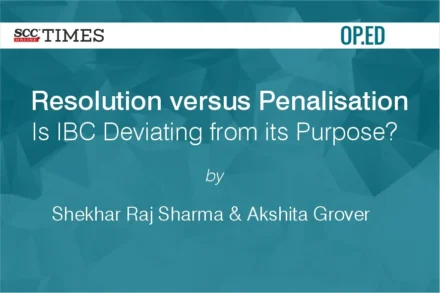
by Shekhar Raj Sharma* and Akshita Grover**

“Whether the Insolvency Resolution Professional is a public servant or not according to Insolvency and Bankruptcy Code or Prevention of Corruption Act, 1988 or Section 21 of Penal Code, 1860, is purely the domain of the legislature and if required, the legislature may carry out necessary amendments to the legislations.”
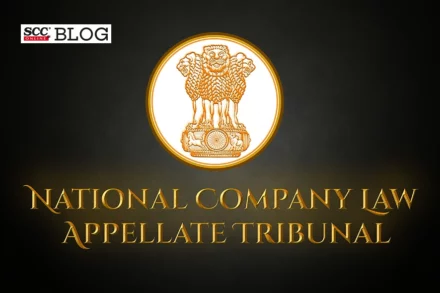
“The ‘Bank Guarantee’ is a ‘contract of Guarantee’ provided/furnished by the Bank, the “surety”, to perform the ‘promise’, or ‘discharge’ the liability, of the third person, being the Corporate Debtor herein, in case of his ‘default’.”

“The IBC and the resolution process does not contemplate matters being left inchoate. In fact, it exhorts one to accept the seal of finality and quietude which stands attached to the approval of a Resolution Plan.”

Limitation shall commence from the date when order is passed and shall not depend on the date when Appellant came to know of the order.
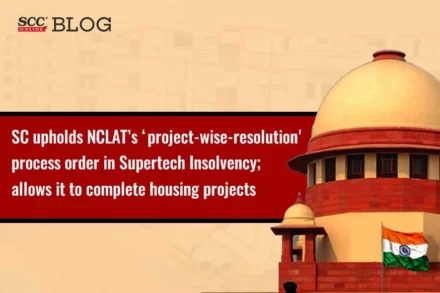
The Court said that if Committee of Creditors would be constituted for all projects of Supertech, it will cause immense hardships to the home buyers and will throw ever project into uncertainty.
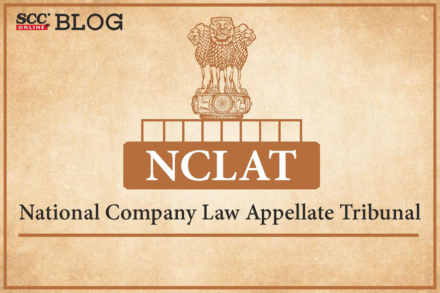
The scope and objective of the Code is ‘Resolution’, and not a ‘Recovery Mode / Forum’.

The National Company Law Appellate Tribunal held that no pre-existing dispute regarding quality of supplied goods exist as the same was not raised before consumption of the goods.
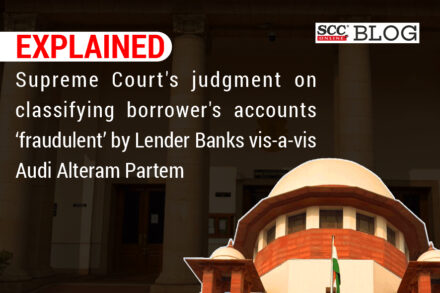
‘Audi alteram partem application cannot be impliedly excluded under the Master Directions on Frauds.’